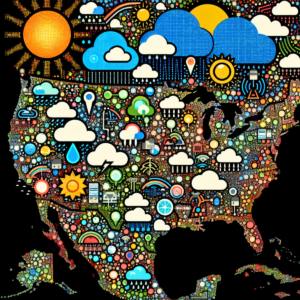Weather is a crucial factor in many aspects of life, from farming to outdoor recreation 🌾⛺. For those of us who rely on accurate weather data, having a personal weather station has been invaluable 📊. Years ago, my organization decided to install a Davis weather station, a trusted name in the field for many years ⛅. The initial investment was over $500 💵, but it paid off—we had access to precise local weather data, which we shared on platforms like Weather Underground 🌍. Most importantly, we had over 8 years of historical data stored on our systems 🗂️, allowing us to track weather patterns over time 📅🌦️.
However, the landscape has changed dramatically in recent years, and not for the better 🚫.

Recently, Davis discontinued the software that had made this project possible ⚙️❌. They introduced a cloud-based alternative ☁️, but at a steep cost. We had to purchase another piece of equipment, this time for over $300 💸, just to continue using the system. While we are still collecting and sharing real-time weather data ⏰🌡️, our access to the historical data that we have diligently maintained for nearly a decade has been severely compromised ⛔.
Why? Because it now costs a monthly fee just to access our own data from the equipment we already own 😡📉.

This change marks a disturbing shift in the weather data industry 🌐, where greed seems to be taking precedence over public service 💰. When we first started the project, the goal was clear: to contribute to a larger network of weather stations across the country, helping to create a rich national database of weather patterns 🌎📈. It was an important endeavor, one driven by community involvement and a shared desire for knowledge 👐.
But the current trend is taking that information hostage 🔒📲. Companies like Davis are no longer content with the upfront cost of their equipment. They want to turn data access into a subscription model 📅💵, profiting off the information that we, the users, are generating and maintaining.

This shift raises broader questions about the accessibility of data and the motives of companies in the weather tech industry ❓. Data that was once public and freely shared is now behind paywalls 🚪💻. This undermines the very foundation of community-based weather projects, where information is meant to be a shared resource 🤝📡.
In an age where technology should be advancing accessibility 🌐, this move feels like a step backward ⏪. Weather data, which has a direct impact on safety, agriculture, and daily life 🚜🌾, should not be locked away behind corporate paywalls 🔐. It’s time for consumers to demand better from companies like Davis 🗣️. After all, it’s our data, our investment—and we should have full access to it 📊🔓.
The weather should be free, and so should the data it generates 🌦️🌍. #WeatherData #PublicData #TechGreed #WeatherStation #OpenAccess
